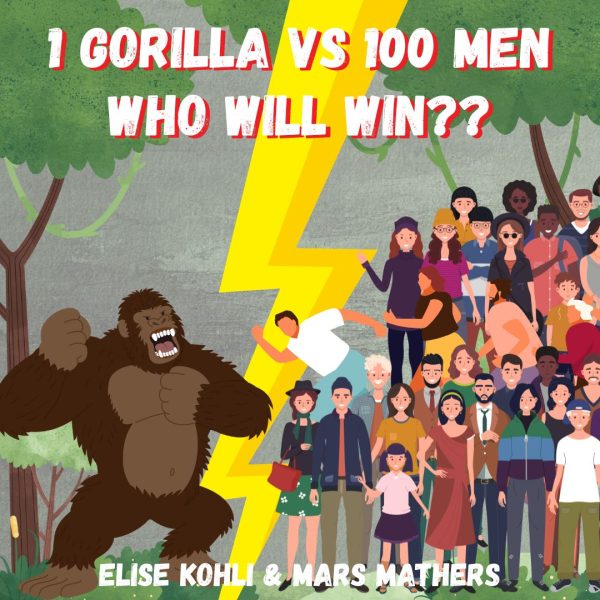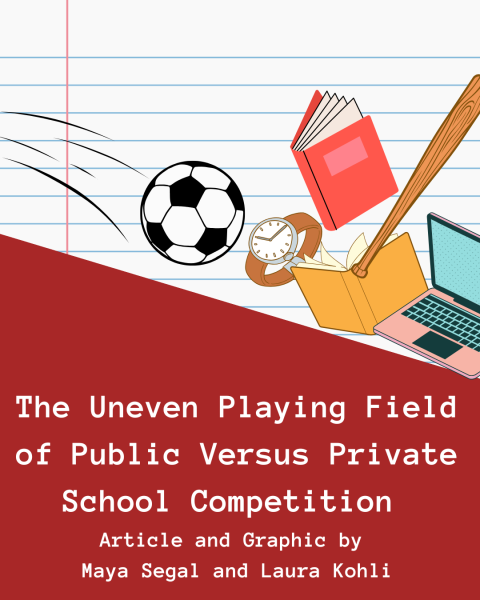Something to Fight For: A Roe v. Wade Opinion
Content Warning: Sexual Violence
I feel like we all felt it coming, that, in a sense, it was inevitable for Roe to fall. And yet, we all had a little bit of hope that it wouldn’t. We brandished our swords and shields, that is, our pens and posters. We screamed battle cries and cheered for eloquent orators that vividly described what we were all feeling; I, myself, took to protest art.
But in the end, none of it made a difference. At least, that’s how it feels right now.
I made it through eleven pages of Justice Alito’s draft opinion. I promised myself that I’d read all ninety-eight meticulously quoted and referenced pages from beginning to end, so that I might be able to arm myself for verbal combat against those who wish to undermine my long sought-after worldview. Once I reached a point in which the opinion was doing nothing but breaking down the constitutionality of this oh-so-fundamental institution letter by letter, I stopped, tuning out Alito much the same way I would my Uncle, who swears that the Democrats, a decades-old political party involving both his sister and his nieces, posed more of a threat to him than the Russian government. I never even reached the part where he references a thirteenth century abortion law (a reference I discovered on SNL, and fully thought to be a joke until my sister fact-checked it in multiple sources) to prove the precedence of legal action prohibiting abortion. Because referencing a proclamation from 500 years before our country even existed is totally reasonable for proving a law’s validity based on a document that exists as an intentional contrast to such middle century governments as these.
Thirteenth century references aside, from what I read, most of the court’s argument is based on the argument that Roe and its proceeding case, Casey vs. Planned Parenthood, were never constitutional in the first place. The opinion goes through the constitutional justifications of Roe (Right to privacy through the first, fourth, fifth, ninth and fourteenth amendments), and breaks them down one by one. I thought of every argument possible to refute them, from dates of viability to equal protection under the law for women under the 14th amendment, all of which were struck down by my politically experienced parents, who had to forlornly inform me that they had all been tried before.
I was furious. Was there no avenue of compromise? No way to make them see reason? No way to stress upon them the importance of the life of the woman they know over the cluster of cells they have yet to meet? No, they argued; they do have thought of the women because most of their laws protect women in life threatening cases. Some even protect them in cases of rape and incest.
But that’s not enough. I understand good and well that the cisgender men making these decisions will never understand the physically grueling and stressful process of pregnancy, nor the physiological effects of birth and what comes after on both mother and child, but that doesn’t stop the urge to scream at them- Can’t you have a little empathy? Can’t you find it in your hearts to think of women? And if not all women, then the women you know. Your mothers, sisters, daughters, friends. Can you get off your moral high horse for two minutes to reach some sort of understanding?
And to the women who spearhead the pro-life movement, who vote for it: where is your sense of solidarity? If you yourself would never consider an abortion, can’t you at least leave room for the women who want, no, need them? Can’t you protect this thing we have, this thing that, if even in a little way, stops these men from controlling us entirely? Can’t you understand the reason for it?
But the answer is always no. No every time, to every plea of empathy and emotion. And the worst part is that they don’t even understand that it won’t stop. Things don’t stop happening just because you wish they wouldn’t, or just because you make laws against them. If you want to play the patriot game, then look to the New England smugglers, who swindled goods in and out of the country to fight what they thought were unjust laws and taxes by the British. Look to the underground railroad, good samaritans who helped hundreds escape to freedom despite extensive laws against it. Understand that legislation stops nothing.
No legal abortion means women in need will turn to unsafe abortion, a type of abortion that attributes to up to 13% of maternal deaths. That’s 30 women out of 100,000 in developed regions. A small number to some, but a small number that can make a baseball team, or two soccer teams, or three supreme courts. Or the staff of a school newspaper. All the Supreme Court has done is cut off any chance at safe access many women had. In a way, they’ve unleashed a new battle cry.
So what do we do now, we who’ve spent so long fighting for Roe, only for our hopes to be slashed in seconds?
We educate ourselves, learning how to be safe beyond what they are willing to teach us in schools, so that we may prevent ourselves from needing abortions in any way still under our control. We use birth control, we educate our friends and family, we protect each other.
We keep fighting. Because overturning Roe puts control of abortion in states’ hands, meaning that legislation can protect the right to abortion locally. Legislation we can fight for by protesting, voting, and speaking out.
Because so long as we are willing to march on, all hope is not lost. As long as we are still willing to fight, there is still something to fight for.
There has to be.

(She/her)
Sam Heyl is a senior excited for her second year on the Eagle's Eye! She lives and breathes animation and any/all creative writing. When she's...











soup • Sep 16, 2022 at 8:41 AM
luv u sam thank you for the article its awesome and so trueee <3